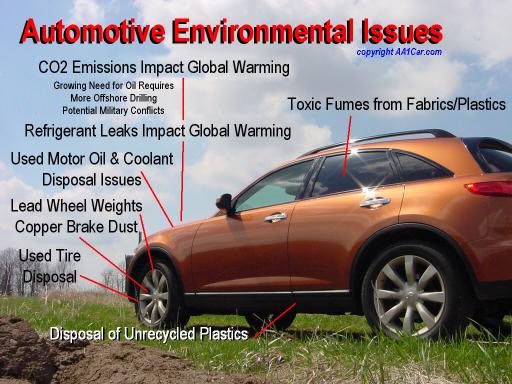Cars have a substantial and wide-ranging environmental impact that spans multiple dimensions. One of the most prominent concerns is the emission of greenhouse gases, particularly carbon dioxide, from the combustion of fossil fuels in internal combustion engine vehicles. These emissions contribute significantly to global warming and climate change, resulting in adverse effects on weather patterns and rising sea levels.

Beyond greenhouse gas emissions, cars also contribute to air pollution. The combustion process releases nitrogen oxides, particulate matter, and volatile organic compounds, which degrade air quality and pose health risks to both humans and ecosystems. This pollution can lead to respiratory and cardiovascular illnesses, as well as smog formation in urban areas, impacting the overall well-being of communities.

The environmental impact of cars is not limited to their operation; it extends to their entire lifecycle. From the extraction of raw materials for manufacturing to energy-intensive production processes, cars consume substantial resources. Moreover, when cars reach the end of their life cycle, their disposal poses challenges due to the presence of hazardous materials. As a result, sustainable solutions such as electric vehicles, advancements in fuel efficiency, and investments in public transportation and shared mobility are being explored to mitigate the negative effects of car-related environmental issues.

In essence, the environmental impact of cars encompasses emissions, air and noise pollution, resource depletion, and waste generation. Addressing these challenges requires a multi-faceted approach that encompasses technological innovation, policy interventions, and changes in individual and societal behaviors towards more sustainable transportation alternatives.


